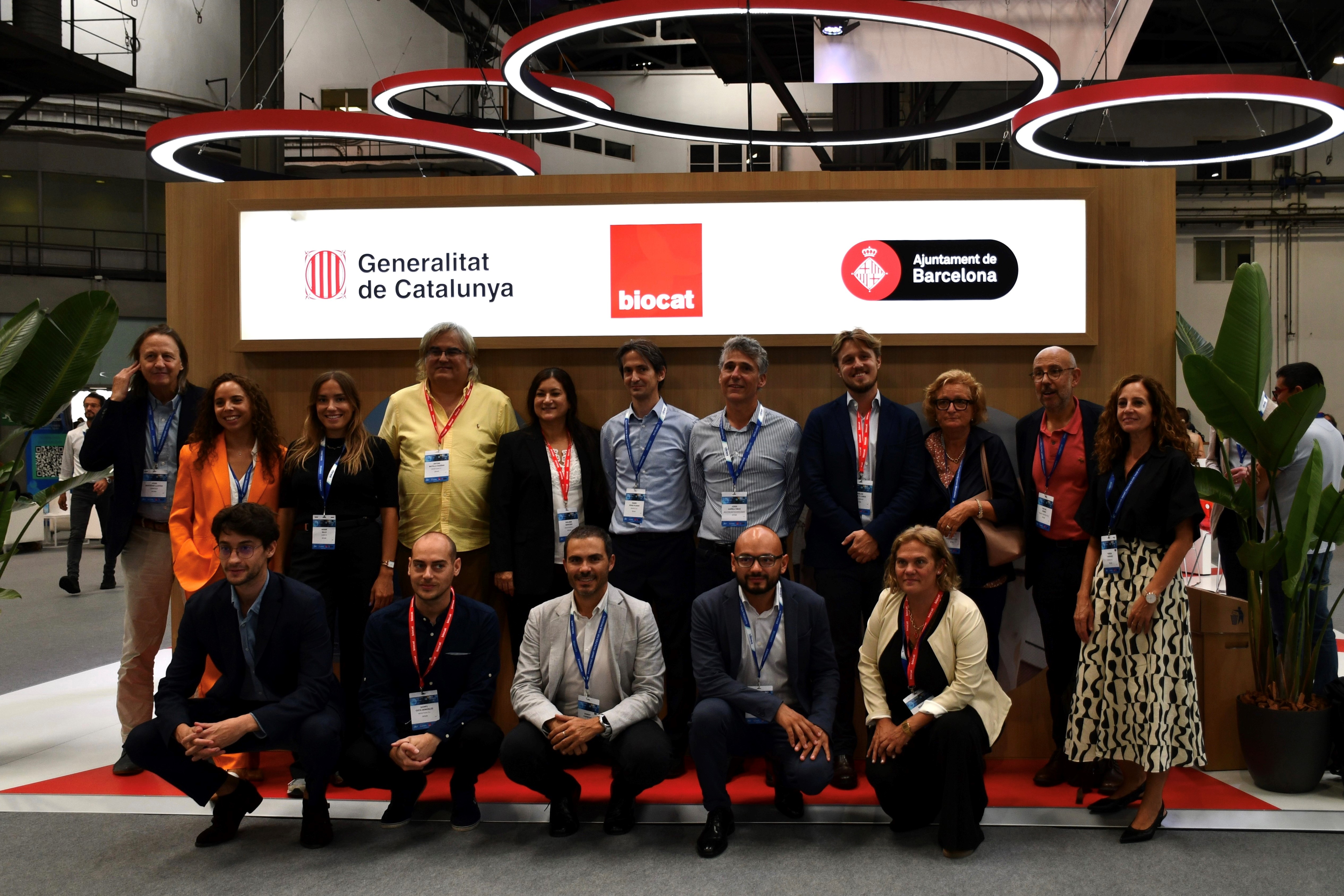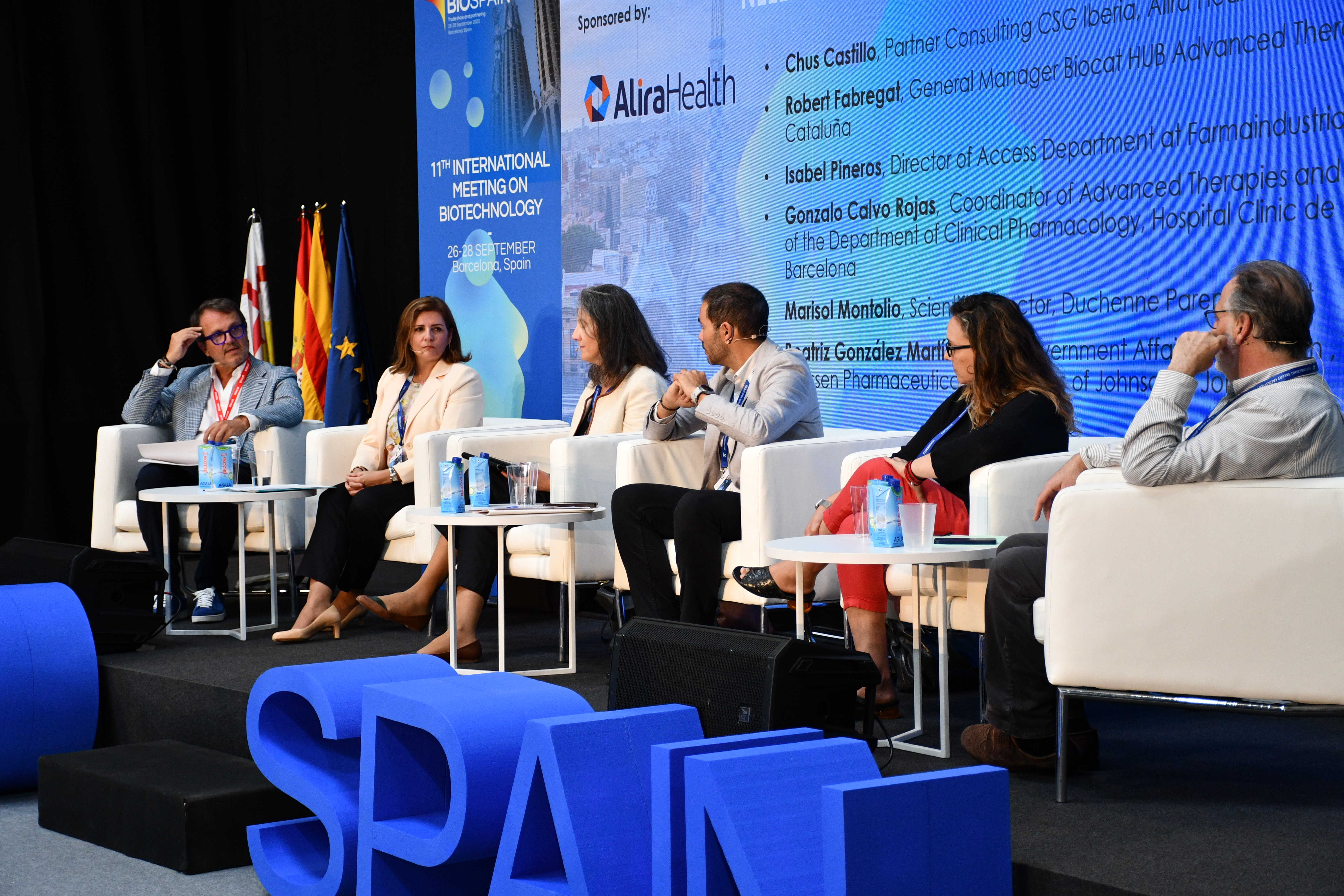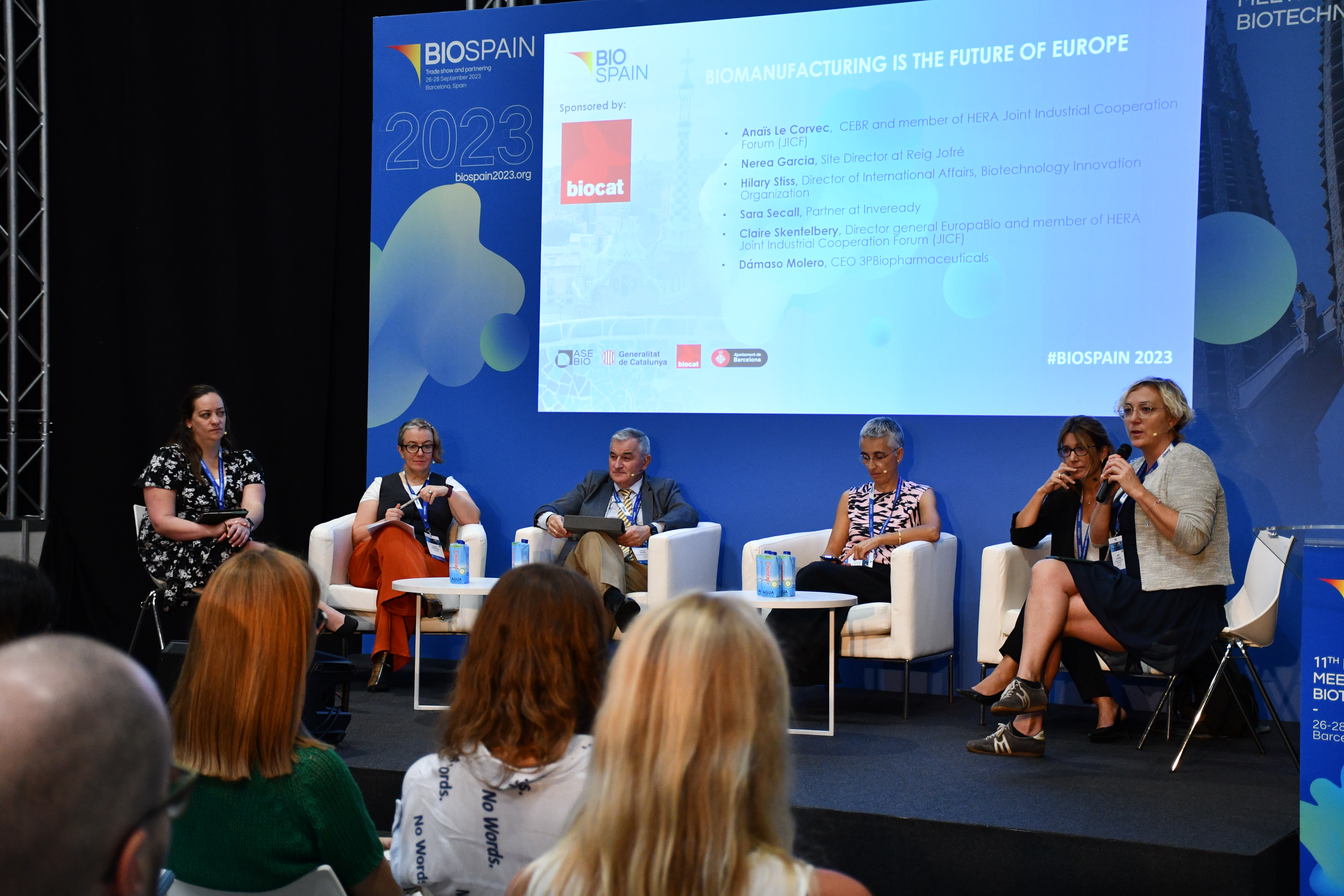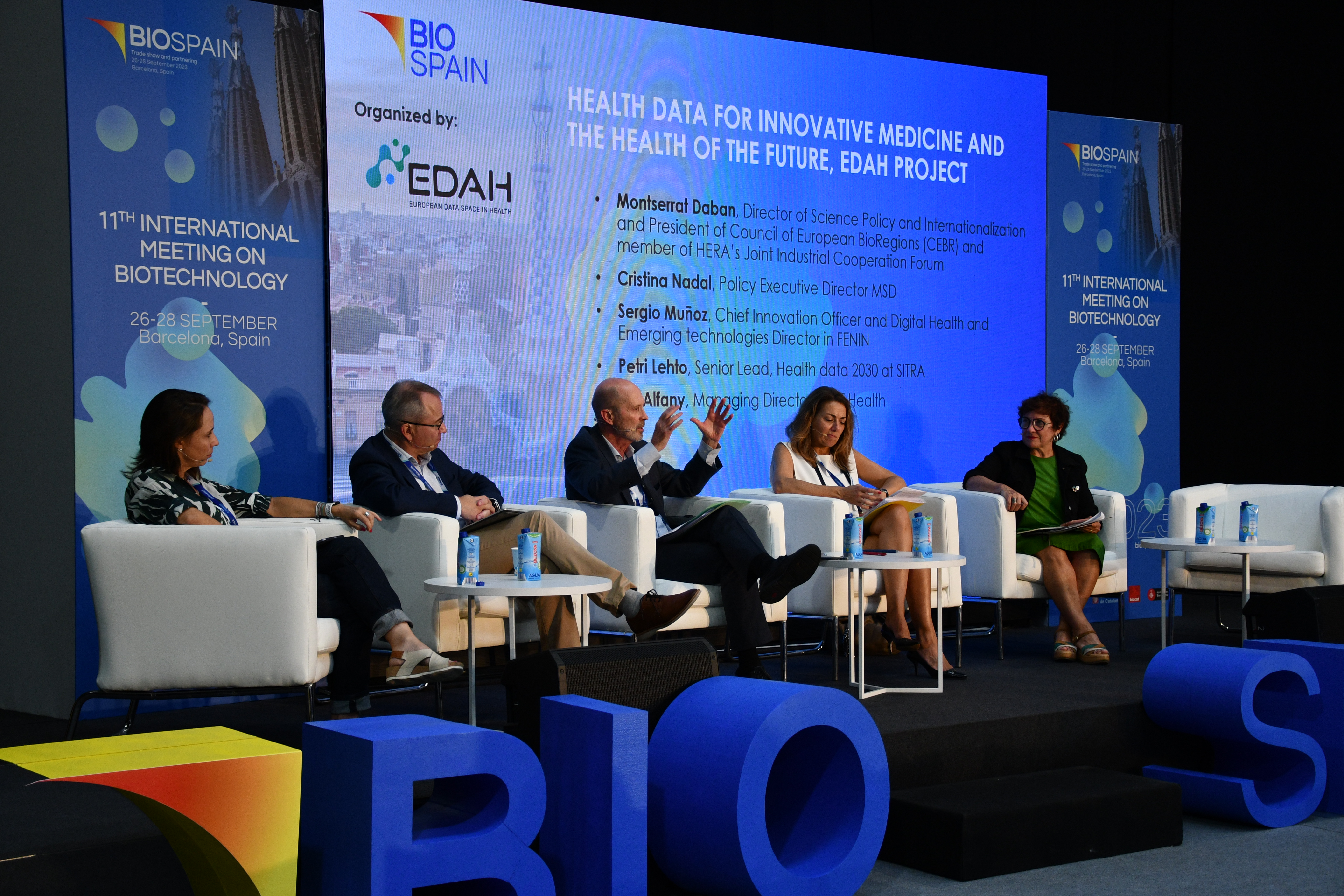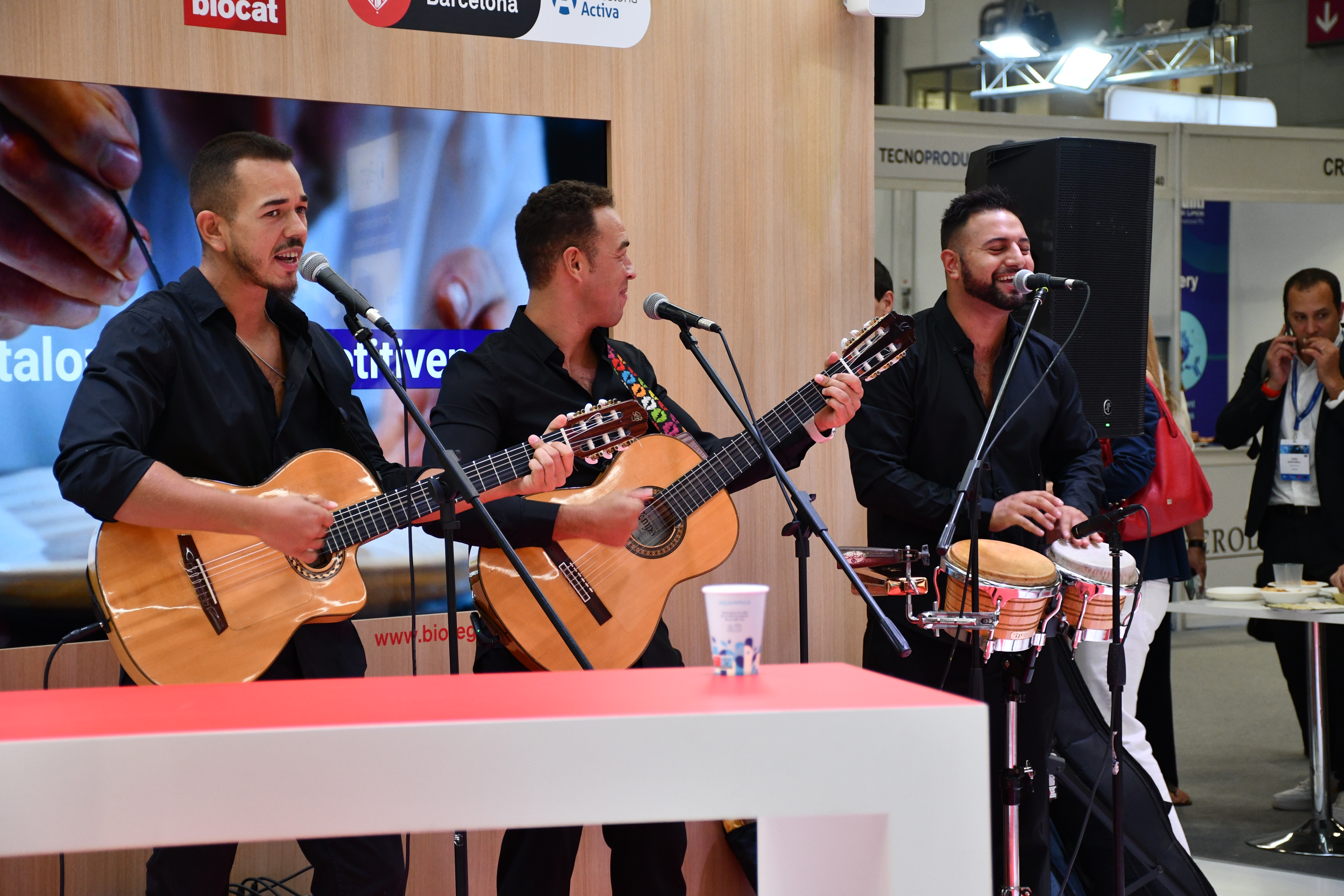All the news from BIOSPAIN 2023, with the biggest turnout in its history
The benchmark European event for the biotechnology sector closed the doors on its eleventh edition in Barcelona with record participation. Let’s look at the highlights of the three-day event, where companies and organizations from the BioRegion of Catalonia played a key role.

BIOSPAIN 2023 closed the doors on its eleventh edition with a clear show of the international draw of the ecosystem in Barcelona and Catalonia. From September 26 to 28, more than 2,100 people passed through the Fira de Barcelona fairgrounds on Montjuïc from 975 organizations in 30 countries, well above the initial estimates.
This means the Barcelona edition had the biggest turnout in the event’s history, both in number of people (up 30% from the last pre-pandemic edition in 2018), participating organizations, number of exhibitors, international representation and number of investors.
“Holding BIOSPAIN in Barcelona was great news for the sector, promising to beat international visibility and participation records, given the great positioning of the city and the BioRegion of Catalonia in Europe. And the data shows those expectations were more than met,” explained Biocat CEO Robert Fabregat.
Given the event’s success, and since BIOSPAIN hadn’t been held in the Catalan capital since 2004, conference organizers AseBio (Spanish Bioindustry Association) have expressed their desire to hold the conference in Barcelona “on a regular basis”. This year’s event was possible thanks to coordinated collaboration among Biocat, the Government of Catalonia and the Barcelona City Council.
Several politicians came to the congress, including President of the Government of Catalonia Pere Aragonès, Catalan Minister of Business and Labor Roger Torrent, Secretary for Business and Competitiveness for the Government of Catalonia Albert Castellanos, Barcelona Deputy Mayor Jordi Valls, Spanish Secretary of State for Trade Xiana Margarida Méndez and Deputy Director General for Innovation in the Spanish Ministry of Science and Innovation Ignacio García Fenol, among others.
The representatives visited the BioRegion of Catalonia pavilion, where they got an overview of the scope and impact of the Catalan ecosystem from startups like Aortyx, Biointaxis, CEBIOTEX, Cytes Biotechnologies, DBGen Ocular Genomics, D-Sight, MedBioinformatics Solutions, Gate2Brain, Beyond You and Remab Therapeutics. They also visited other Catalan companies like Grifols and Almirall, and research centers like the Institute for Bioengineering of Catalonia (IBEC) and the Center for Genomic Regulation (CRG).
Noteworthy participation of the BioRegion of Catalonia on the program
In figures, BIOSPAIN 2023 saw great turnout from the Catalan ecosystem, with renowned speakers, organizations and exhibitors. More than 300 companies from the BioRegion of Catalonia participated, making up over a third of the total (975). In terms of exhibitors, more than 50 had their own stand in the exhibition space. This environment offered the possibility to collaborate with over 100 accredited investors. Plus, there were more than 5,000 partnering meetings held.
Additionally, it is worth noting that over 20 speakers from the ecosystem shared the region’s initiatives and potential in the more than 60 sessions, some organized by Biocat.
News and debates on biotechnology
In terms of the science program, BIOSPAIN offered a complete snapshot of the challenges and opportunities setting the pace for the biotech industry with such important topics as advanced therapies and personalized medicine, biomanufacturing and the European Health Data Space, among others.
Development of drugs based on advanced therapies and personalized medicine is growing quickly around the world. In fact, there is already talk of a new sector of the economy. But what is the situation like in Spain? The panel discussion “Advanced Therapy Medicinal Products Strategy” shared the experiences of the ecosystems in Catalonia and Gipuzkoa (Basque Country) in developing strategies to promote this type of medicines.
Biocat CEO Robert Fabregat presented the future Advanced Therapies Hub, coordinated by Biocat, and Biodonostia-GANTT Scientific Director Itziar Vergara explained some of the initiatives underway in the Basque Country. Núria Montserrat, principal investigator at the Institute for Bioengineering of Catalonia (IBEC), and Iraida Loinaz, director of CIDETEC Nanomedicine, also took part in this session moderated by SILO partner Ángel Sánchez. The representatives of the two ecosystems highlighted the need for public-private partnerships and for these drugs to be produced on a large scale to reach everyone.
Another of the many sessions on advanced therapies, also featuring Robert Fabregat presenting the new Advanced Therapies Hub, was “New EU Regulations: Overcoming Challenges to Deliver ATMP to Patients in Need”. This session discussed the new European regulation on advanced therapies and how the new framework will improve patients’ access to these drugs, cutting assessment to 30 days.
Another of the many sessions on advanced therapies, also featuring Robert Fabregat presenting the new Advanced Therapies Hub, was “New EU Regulations: Overcoming Challenges to Deliver ATMP to Patients in Need”. This session discussed the new European regulation on advanced therapies and how the new framework will improve patients’ access to these drugs, cutting assessment to 30 days.
The session titled “Biomanufacturing is the Future of Europe”, coordinated by Biocat, focused on the transformative role biomanufacturing is playing in the future of Europe and ensuring the sustainability of the bioproduction industry. Anaïs Le Corvec, CEBR managing director and member of the HERA Joint Industrial Cooperation Forum (JICF), moderated the panel discussion, which featured Nerea Garcia, plant director at Reig Jofré; Hilary Stiss, senior manager for International Affairs at the Biotechnology Innovation Organization; Sara Secall, parter at Inveready; Claire Skentelbery, director general at EuropaBio; and Damaso Molero, CEO of 3P Biopharmaceuticals.
The speakers highlighted that the biomanufacturing industry is growing and can play a transformative role in Europe’s future, but for now biomanufacturing is fragmented and full of bottlenecks. So, top-notch strategies are needed to make it sustainable, streamlined and accessible to all.
The forthcoming EHDS, a standardized framework of regulations, standards and practices, infrastructures and governance, will add challenges but also create great opportunities, as explored in a panel organized by the EU funded EDAH project. The panel called “Health data for innovative medicine and the health of the future, EDAH project” analyzed the barriers and drivers for making the most of the potential for secondary use of health data and preparing the industry to participate and contribute to this transformation.
The session was moderated by Montserrat Daban, Biocat director of Science Policy and Internationalization and president of the Council of European BioRegions (CEBR), and featured Antonio Alcolea, deputy director general of Data Economy and Digitalization (Secretary of State for Digitalization and Artificial Intelligence) in the Ministry of Economy and Digital Transformation; Cristina Nadal, Executive Policy director at MSD; Sergio Muñoz, Chief Innovation Officer and Digital Health and Emerging Technologies director at FENIN; Petri Lehto, senior advisor in the Health Data 2030 project at SITRA; and Iza Alfany, managing director at EIT Health.
Other sessions that also packed the auditorium included the keynote session on HIPRA, with Executive R&D Vice-president Èlia Torroella explaining their success in developing the COVID-19 vaccine; the panel discussion “Can greater scale for Europe’s biotech clusters be its key driver for global competitiveness?”, which analyzed Europe’s possibilities for making the most of its potential and resources to scale up; and the keynote session with Sara García, the first Spanish female astronaut candidate and molecular biologist, among others.
There was also time for fun and socializing, with a human castle group from l'Esquerra de l'eixample, who performed during the BIOSPAIN Welcome Reception at the Museu Nacional d’Art de Catalunya (MNAC). Plus, several organizations hosted parallel activities to encourage networking. In the BioRegion of Catalonia pavilion, there was a group playing Catalan rumba music after the sessions.


